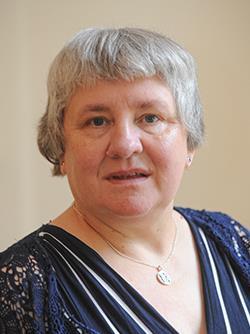In association with

An on-demand version of this webinar is available.
Generative AI offers huge potential for the NHS to work more efficiently but it is often difficult for organisations to take the first step. While much has been said about some of the clinical applications of AI – such as in interpreting scans - there are many more routine tasks where it could be used to improve efficiency and reduce the impact of staff shortages.
This HSJ webinar, in association with Microsoft, looks at how AI can be adopted in the NHS and where it is already making a difference.
It will ask:
- What are the potential benefits for the NHS in thoughtful adoption of AI – and what is holding them back from adopting it?
- Which of a hospital’s functions are the best places to start for NHS organisations looking to adopt AI? Are these clinical or non-clinical – or a mixture of both?
- What are the lessons from how generative AI has been used in NHS organisations which were early adopters?
- How can organisations stay up-to-date in this rapidly developing field to ensure they maximise the benefits of AI for staff and patients?
To access the recording, visit here and click play.
If you had previously registered as a viewer for the event, you will be able to view the recording immediately.
If you have not previously registered, please complete the registration form at the foot of this page to access the recording.
Panellists

Anna Dijkstra, director of innovation for healthcare and life sciences, Microsoft
Anna Dijkstra is the director of innovation for healthcare and life sciences at Microsoft, where she works with organisations to match digital technologies to clinical and operational challenges, with a particular focus on interoperability and AI. She has decades of experience delivering change and transformation in healthcare, from the front-line to system-wide reconfigurations, and in life sciences firms globally. She was a corporate strategy consultant for the early part of her career and spent several years delivering strategy and policy in the NHS.
Malte Gerhold, senior health and social care leader, Health Foundation
Malte Gerhold joined the Health Foundation in May 2022 as director of innovation and improvement, leading its work to support radical innovation and improvement in health and care services.
He was previously chief integrated care officer at Birdie, a digital startup helping to reinvent the way we age, where he led its collaboration across social care and the NHS. He has also worked as executive director of strategy and intelligence at the Care Quality Commission, in the Prime Minister’s delivery unit and the Department of Health and Social Care, and at Accenture.

Erik Mayer, clinical reader at Imperial College London and consultant surgeon at Imperial College Healthcare and the Royal Marsden
Erik Mayer is a clinical reader at Imperial College London and a consultant surgeon at Imperial College Healthcare and the Royal Marsden. He is director Imperial Clinical Analytics, Research & Evaluation, and the Digital Collaboration Space, Paddington Life Sciences.
He is Imperial College Healthcare’s transformation CCIO (Analytics & Informatics), and chairs the NIHR Imperial Academic Health Science Centre research informatics committee and represents Imperial at the UK Health Data Research Alliance Council. He is theme lead in the NIHR Imperial Biomedical Research Centre (Digital Health) and the NIHR NWL Patient Safety Research Collaborative and is programme director for the MSc Health Policy, Centre for Health Policy, Institute of Global Health Innovation.

Alison Moore, contributor, HSJ (webinar chair)
Alison is an HSJ correspondent covering the South East and ambulance services nationally. She has worked in health journalism, mainly as a freelance, for many years and was previously deputy editor of a magazine for doctors.


























